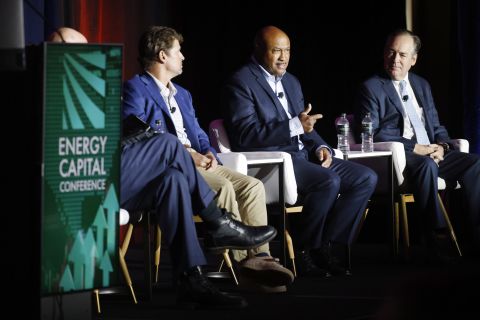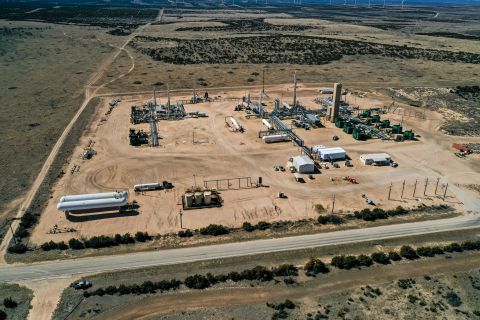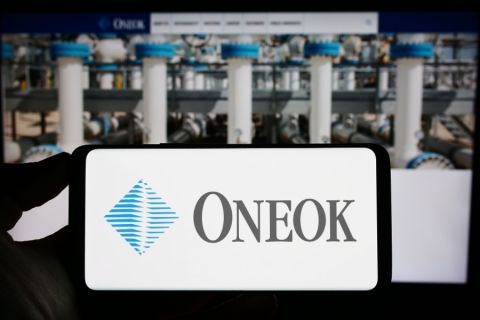
Local content should not be a panacea for local development problems in Brazil, but should be respected and seen as one of several economic policy tools, according to a consultant with expertise on the issue.
“The current challenge in Brazil is that so much is being asked of local industry so fast in order to achieve very aggressive production targets,” said Jon Vague, president and CEO of NLV International. “Local industry may not be able to deliver so much on time and at worldwide competitive prices. Local content is under pressure for that reason. If operators and their key service companies cannot deliver, production targets and related income will suffer, compromising national development. The National Petroleum Agency of Brazil (ANP), Brazil’s regulator in charge of enforcing local content, is working competently in implementing ambitious mandates while remaining realistic about industry capabilities.”
The law, which aims to grow the local labor market, technology, and its competitiveness, requires companies to contract with Brazilian suppliers under certain conditions. The minimum local content requirement for exploration projects is 55%. The regulation comes as the Latin American country tries to boost its productivity and development with necessary investment in research and development, infrastructure, and education, as noted by NLV.
Exploration and production activity in Brazil has stepped up recently as the country’s national oil company, Petrobras, increases action. Brazil, according to the US Energy Information Administration, has 14 Bbbl of proven oil reserves, mostly located offshore in the Campos and Santos basins. However, Petrobras expects that figure to double in the coming years with the discovery of oil and gas in the pre-salt region.
Currently, there are more than US $250 billion in planned total investments by oil and gas operators in Brazil during the next five years, with Petrobras accounting for about 85% of those investments based on the company’s business plan, according to industry sources. More than $130 billion is being steered toward E&P, half of which targets pre-salt development. Funds for equipment and services could surpass $150 billion, 60% of which are for E&P.
While Petrobras has pumped more dollars into exploratory spending, other internationals may be rethinking entering or staying in the Brazilian market due to Brazil’s local content policy. A recent report by OFS Capital revealed some companies are being fined for not meeting the requirements. The report also showed that some companies are critical of the law partly because they can get better deals for equipment and services elsewhere, and there is a limited number of skilled workers.
Moreover, “Penalties for non-compliance can be very high in an environment where local production may not be sufficient or available for compliance, despite best intentions from the part of operators and services companies,” Vague said. “The exceptions provided in the mandates for the insufficiency or inexistence of local sources for production will be increasingly tested and defined. ”
Local content policy considerations, according to NLV, should include:
• Existence of domestic supply;
• Volume, price, and timing of domestic supply versus foreign;
• Capability, cost, financing, and timing of developing future domestic supply;
• Impact of local content on competitiveness, R&D, training, and environmental, health and safety;
• Impact of local content on sustainable employment and wealth creation;
• National priority in meeting production targets versus enforcing local content; and
• Capability and cost of enforcing local content.
Steps toward improving any country’s policy should include looking at the big picture of what has worked successfully in other areas of the world and considering the country’s oil industry in terms of where it stands globally, Vague said. If these steps aren’t taken, “too rigid local content policies could result in missing O&G production timelines, losing new investments by operators and service companies, and compromising overall productivity and global competitiveness. Eventually, if local production is sustained in uncompetitive grounds, local employment and living standards will also be compromised. The Brazilian government and industry have very capable people who are aware of these considerations and can positively influence policies. ”
A deficiency in the number of technical personnel is already being addressed by Brazilian institutions, companies, and technology centers, Vague said, as the country works to grow its own expertise. Other efforts are being made via partnerships with international companies to establish R&D facilities in Brazil.
Asked if he foresaw any changes to Brazil’s existing local content policy anytime soon, Vague answered yes. “Brazil as a society tends to be more pragmatic than ideological, and it is a democracy where constructive dialogue takes place and citizens have a say. Policy toward the O&G industry is key, since O&G is a national priority for Brazil’s development. If problems become increasingly evident, Brazilian citizens and institutions will call for changes in a democratic way.”
Contact the author, Velda Addison, at vaddison@hartenergy.com.
Recommended Reading
Post Oak Backs New Permian Team, But PE Faces Uphill Fundraising Battle
2024-10-11 - As private equity begins the process of recycling inventory, likely to be divested from large-scale mergers, executives acknowledged that raising funds has become increasingly difficult.
Oxy’s Hollub Drills Down on CrownRock Deal, More M&A, Net-zero Oil
2024-11-01 - Vicki Hollub is leading Occidental Petroleum through the M&A wave while pioneering oil and gas in EOR and DAC towards the goal of net-zero oil.
Midstream M&A Adjusts After E&Ps’ Rampant Permian Consolidation
2024-10-18 - Scott Brown, CEO of the Midland Basin’s Canes Midstream, said he believes the Permian Basin still has plenty of runway for growth and development.
ONEOK Offers $7B in Notes to Fund EnLink, Medallion Midstream Deals
2024-09-11 - ONEOK intends to use the proceeds to fund its previously announced acquisition of Global Infrastructure Partners’ interest in midstream companies EnLink and Medallion.
Analyst: Is Jerry Jones Making a Run to Take Comstock Private?
2024-09-20 - After buying more than 13.4 million Comstock shares in August, analysts wonder if Dallas Cowboys owner Jerry Jones might split the tackles and run downhill toward a go-private buyout of the Haynesville Shale gas producer.
Comments
Add new comment
This conversation is moderated according to Hart Energy community rules. Please read the rules before joining the discussion. If you’re experiencing any technical problems, please contact our customer care team.





